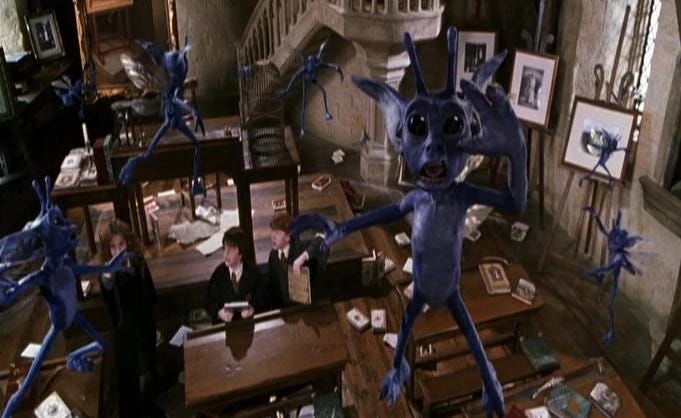Earlier this spring, I contemplated visiting Lake Ontario so I could ditch my phone in its cold, rain-battered waters. It seemed like the only permanent solution to my problem(s).
I was constantly refreshing Reddit for updates, which kept me from focusing on any activity for longer than 15-20 minutes.
I Googled questions as soon as they came to my mind because I could not delay the gratification of learning their answers.
Reading books came second place to reading people’s comments on digital forums.
Worst of all, I couldn’t pay attention to what my mother was saying on the phone from a different time zone, 7000 miles away, because I had to inject myself with online activity as soon as I woke up.
Objectively, these habits were not shocking for a 21st-century native, but I felt increasingly unsettled by them.
I did not want to feel so bewitched by my phone that I couldn’t stay away from it long enough to read, write or pursue a meaningful goal. I did not want my thoughts and impulses to rattle in my insides like hyperactive Cornish pixies1. I did not want to be half-listening to my mother, who shared updates and tidbits from her day to keep connected to me from continents away.
Facilitating an intervention
Last year, when I wanted to reinstate my reading habit, I picked up two books about the effect of reading on the brain. It was a successful strategy that reminded me, through scientific evidence, of the fulfillment that reading brought me. I surmised that I might have to do something similar, albeit with a book that could confirm, through scientific evidence, the havoc that uninhibited phone usage was causing for me.
My search ended with Dopamine Nation, written by Anna Lembke, MD, Chief of the Stanford Addiction Medicine Dual Diagnosis Clinic at Stanford University.
Erroneously, I thought the book was about addictive smartphone usage. Turns out, it was about addiction in general. It opened with the story of a man so hooked on masturbation that he built a machine to help improve and prolong his experience.
“Well,” I thought, “that is neither relatable nor the extent of my problem.”
His story was unusual and, frankly, engrossing, so I kept reading and soon discovered that at the root of an addiction to anything—masturbation, cannabis, food, romance novels, psychiatric drugs, smartphones— was a pleasure-pain balance gone wonky. Lembke lays out the basic principles:
The body’s natural set point is a balanced state that is neither pleasure nor pain.
Feelings of pleasure are followed by a dip as the body attempts to return to its natural set point.
If the body is not allowed to return to a state of homeostasis, we become desensitized to pleasure. Trying to tackle desensitization by doubling down on sources of pleasure is what creates the addiction cycle.
To restore equilibrium, Lembke has a variety of solutions:
Dopamine fasting which involves abstaining from the object of your addiction for a whole month.
Self-binding which involves setting rules around consumption.
Pursuing pain and discomfort through exercise, extreme sports, cold baths and practicing radical honesty in relationships.
If you’re looking for a science-heavy book or one that properly takes societal and systemic causes of addiction into account, this is not it. Lembke’s proposed solutions seem adequate for compulsive overconsumption which is what I was dealing with, but if someone is struggling with more serious forms of addiction, then this book would only make for the first stop. The final section also has a moralizing and puritanical tone at times which made me (politely) say, “Excuse me?”
But, for all of the book’s shortcomings, I did find it helpful. I went off of Reddit for a month which freed up large waves of my times and removed a major source of distraction. I also limited Internet usage by noting down my near-infinite questions and curiosities in a notepad throughout the day and looking them up during an assigned hour in the evening. Distancing myself from the allure, I learned, was essential to defying it.
Why this matters
Unhooking myself from the smartphone and the Internet is not just about curbing the ill effects of excessive technology use. It is about reacquainting myself with the fact that the things I genuinely care about and find fulfilling exist outside of a 6.1-inches screen. In the face of the infinite scroll, it became easy to forget this simple truth.
I had also forgotten what it felt like to be viscerally ‘chill.’ Reading comments, watching reels or jumping from one social media platform to another could never inspire this lowkey, rooted-in-the-present unbotheredness.
But you know what reliably does? Finishing what I had planned with minimal distractions. Reading after dinner. Writing for an hour every day. Lying on the bed, with my feet up against the wall and my mind leisurely noticing the ceiling’s texture, then tuning into the cricket’s lonesome chirping at 5 PM. Talking to my mother and chatting with friends without flicking to a screen and ‘multitasking.’ Reducing how much I surf and scroll.
This is the chill I aspire to and have begun to feel:

Is this the start of a technological happily ever after? It would be too optimistic to say yes. But, at the very least, I have some tools to find my way back to it.
Or I can go to Lake Ontario.
That option is still open, just in case.






Thanks for sharing your experience, Esha! The book you mentioned sounds really interesting! For me, setting rules around consumption has helped, but the other strategies mentioned sound like viable options (including the Lake Ontario option lol). It’s always helpful to hear how everyone else is dealing with this all-too-familiar 21st-century issue.
Wow, I did the same thing two months ago, and my life has been so much better. Staying away from my phone and laptop helped me finally start working on goals that I'd been procrastinating on for over 5 years. Turns out our mothers were right- it is the stupid phone to blame.